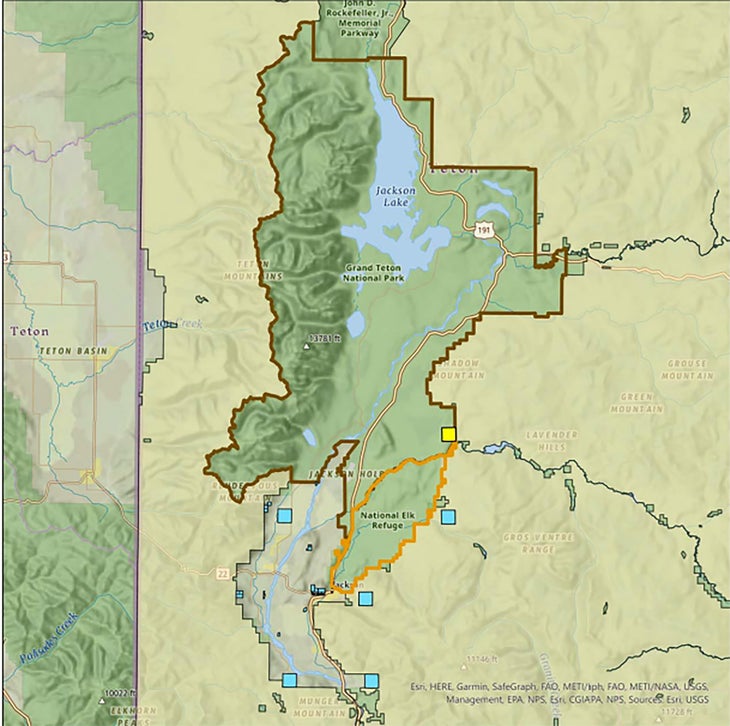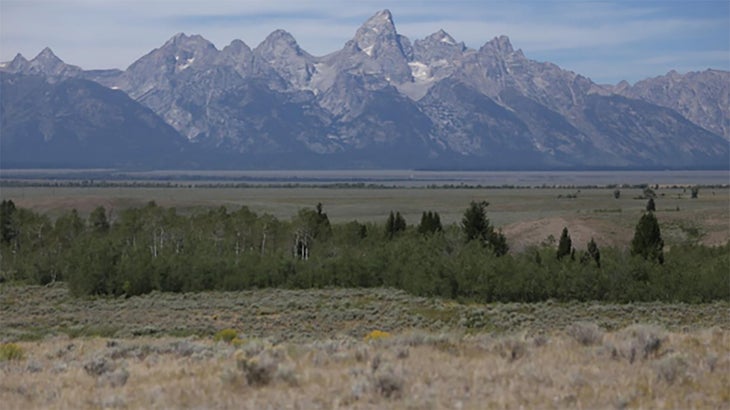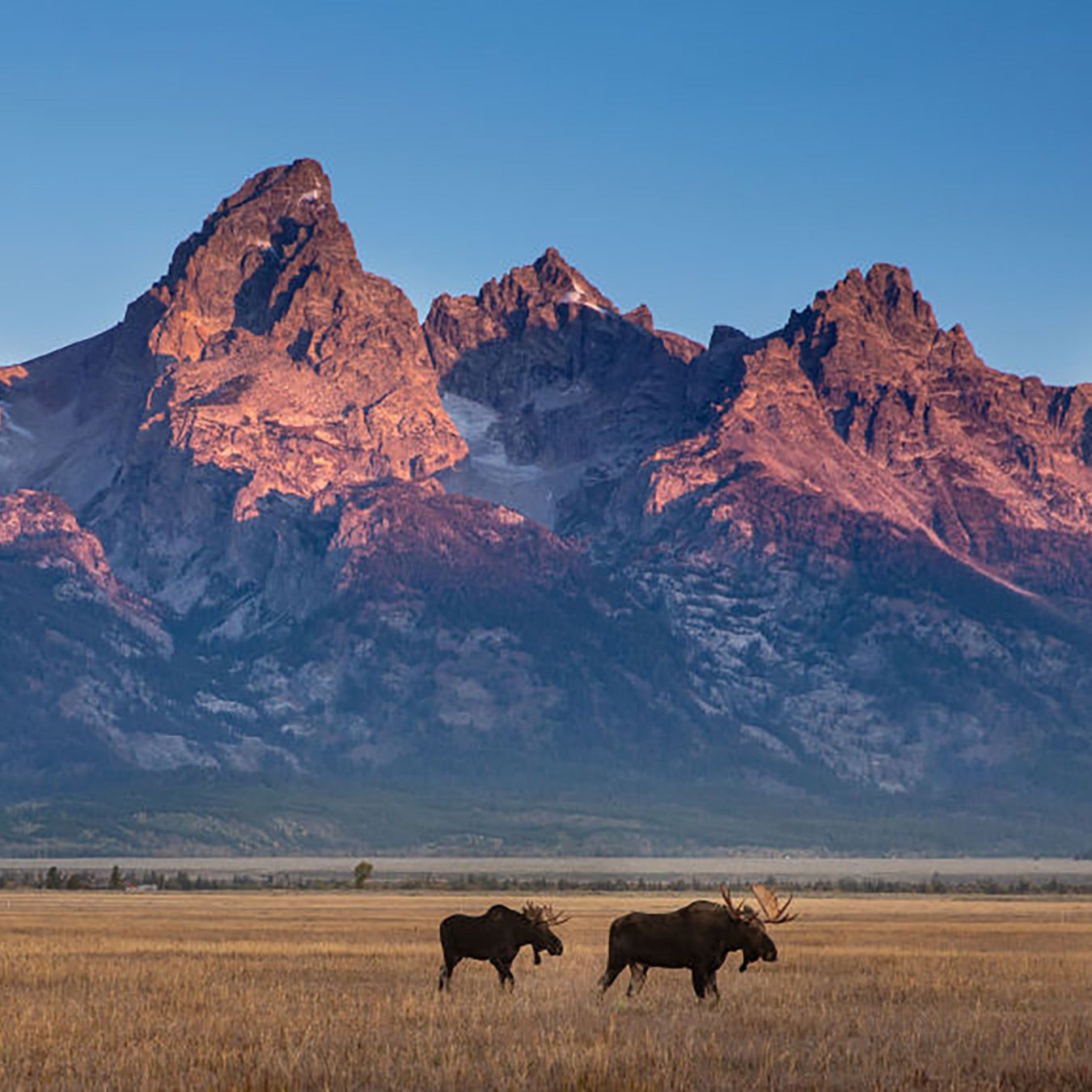In the classic 1961 Walt Disney film 101 Dalmatians, aspiring songwriter Roger Radcliffe is presented with an ethical conundrum. Should Radcliffe keep the litter of cuddly puppies—dogs that everyone loves and agrees are oh-so adorable—so that one day his infant may enjoy their pooch affection? Or, should he sell the animals to wealthy socialite Cruella de Vil, so that she can skin them alive and stitch their spotted carcasses into her personal evening-wear?
Children’s movies have a way of boiling situations down to the most basic good vs. evil ethics. I recently screened this film for my four-year-old, and even she knew which option ol’ Roger should choose. Yeah, not the one involving cash.
Alas, there are times when the adult world presents society’s power brokers with decisions that are similarly black and white, yet they make the wrong choice. And right now, such a scenario is playing out in Wyoming, where state lawmakers are trying to decide what to do with a square mile of pristine backcountry located within Grand Teton National Park. The swath of land has views of the peaks and crisp mountain air, and is virtually untouched by human settlements or building. Should the state sell it for tens of millions to the National Park Service for protection, so that future generations can enjoy the elk and grizzly bears and other critters that call it home? Or, should the state sell it for even more cash to a private developer who will erect megamansions to be sold to Russian oligarchs and crypto gazillionaires?
You’d think the answer would be easy, but alas, it has proven to be vexing to the elected class in Wyoming. At the moment, the state legislature is leaning toward selling the land off to whomever writes the biggest check at a public auction. A panel composed of the governor, secretary of state, auditor, treasurer, and superintendent of public instruction will meet on Thursday, December 7, to make a final call on whether to choose protection or McMansions. Across the country, lawyers, elected officials, and advocates for public lands are watching in horror.
“What’s going on in Wyoming is emblematic of making good choices for the future generations,” Kristen Brengel, the senior vice president of government affairs for the National Parks Conservation Association told me. “If we just encircle our national parks with development and they become islands, then they won’t survive the way people expect them to.”
It goes without saying that Wyoming should do the right thing here and ensure that the Park Service takes ownership of the land. But alas, I’m not sure the people in charge have the ethical compass to not sell a cute and cuddly puppy to Cruella de Vil.
The Kelly Parcel

Some quick background: the square-mile plot, called the “Kelly Parcel” due to its proximity to the town of Kelly, is owned by the Wyoming state land trust, yet three of its four boundaries lie inside of Grand Teton National Park. Due to its location, the land is important migratory ground for many of the animals that live inside the park, as grizzly bears and migratory birds can’t tell the difference between federal or state-owned land (note: they can tell the difference between grassland and a heated driveway leading to a McMansion).
But the state has no obligation to protect the ground or the creatures that live on the Kelly Parcel—quite the opposite, in fact. As is the case in other states, Wyoming constitution requires lawmakers to monetize state trust land to the fullest, because the funds help support public schools. Often, this monetization means charging private companies for mineral extraction or grazing. But in the case of the Kelly Parcel, the state wants to sell it outright, because the land generates only $2,845 a year from a grazing lease. Meanwhile, the value of developable land in and around Jackson has become so egregiously expensive that the only potential home buyers are former U.S. vice presidents or guys who played Han Solo and Indiana Jones.
“You’ve got arguably one of the most valuable pieces of land within a national park and it’s making $2,800 a year for the kids and that’s not fulfilling the fiduciary responsibility they have for the education system,” Rob Wallace, the former assistant secretary of U.S Fish and Wildlife, told Politico.
Wyoming lawmakers could step in and force the state to sell the land to the Park Service. There’s precedent for this type of sale, and previously the state sold three similar square-mile parcels to the NPS. Most recently, Wyoming completed the sale of the Antelope Flats parcel to the Park Service for $46 million in 2016, half of which came from private donations.
But the NPS must purchase land at its appraised value, and in 2022 the Kelly Parcel was appraised for $62 million. Officials in Wyoming know that opening the land up to a public auction would fetch a much higher price—last week they said the starting price should be $80 million.
And at the moment, the handful of officials who oversee this decision argue that the state has an obligation to raise the most cash possible.
Unanimous Anger
Just like my four-year-old watching a Disney movie, pretty much everyone who is familiar with the Kelly Parcel sale knows that selling the land to billionaires is the wrong thing to do. Locals in Jackson turned up in droves to the four public hearings in November to voice their anger. During the public comment period, which ended on December 2, Wyomingites submitted thousands of angry letters.

The opposition has drowned out whatever proponents may be out there. Over the past few weeks I have read local and national coverage of the story, and anyone willing to be quoted—and this includes Wyoming elected officials on both sides of the aisle—absolutely hates the idea of selling to the highest bidder.
This constituency includes folks you might not associate with environmental protection. Chuck Grey, the state’s Secretary of State, and a Republican, opposes the sale. Rob Wallace, who was appointed to his Fish and Wildlife post by Donald Trump, said selling would be something that “Wyoming would not be proud of.” Local real-estate agents in Jackson even oppose it. “Just because you can doesn’t mean you should,” Greg Prugh, broker/owner for Prugh Real Estate, told WyoFile.
Even though most people oppose the sale doesn’t mean the state will listen. And that is perhaps the most frustrating part of the Kelly Parcel ordeal—the state appears to be deaf to the will of the people.
On a national level, advocates for environmental issues and public land protection are watching the sale with wide eyes. They know that the ordeal could set a precedent for other states wanting to ignore the will of voters and simply sell off state trust lands to developers.

“This is not a partisan issue,” Aaron Weiss of the Center for Western Priorities told me. “I guarantee that if you put a ballot measure on any state ballot, including Wyoming, asking voters if they should simply maximize the value by selling state lands, or take a balanced approach to keep public lands public, the public option will always win.”
But the big problem for public land advocates and opponents of the Kelly Parcel sale is that the true villain in the ordeal isn’t a person, but rather a policy. State trust lands were given to states by the federal government upon their founding, with the explicit goal of monetization, no matter the method. In many states, there is no mechanism for the public to decide how a plot of state land should earn cash for the state. Grazing, mineral exploration, the sale of pristine backcountry to Cruella de Vil or Darth Vader or whomever—anything goes.
The one thing public-land advocates told me is that the ordeal surrounding the Kelly Parcel is simply bound to repeat itself for future generations. And that means more angry public hearings and letter-writing campaigns.
“This issue comes back up every few years,” Brad Brooks with The Wilderness Society told me. ”It never dies. And it will never die.”

